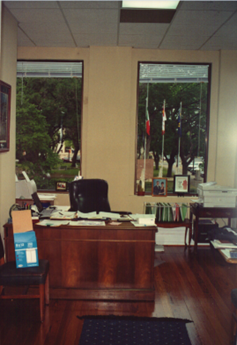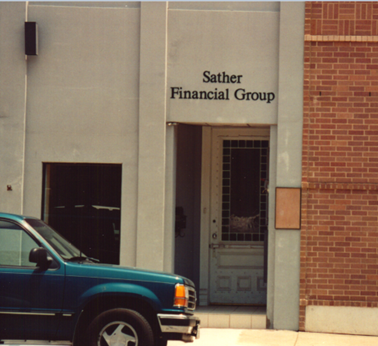25 Years of Entrepreneurship
This week marks our firm’s 25th anniversary. It has been a phenomenal blur. In 1999 my simplistic plan for a “fee-only” and “fiduciary” investment firm fit on a cocktail napkin. It was me, a phone and a computer. Some of this journey may help others.
Finance is taught as a discipline of logic and precise formulas. However, people and finances are a hot mess with a wide range of expected outcomes. Because budgets and finances can be summarized with tidy formulas, we assume the world works that way. It does not!
Success requires appreciation for how psychology and human behavior intersect with logic and math. Humans have logical elements, but we are not algorithms.
If I had college to do over again, I’d major in Behavioral Finance. The way people engage today requires us to spend more time wearing our “psychologist” hat than our “financial analyst” hat. To develop an appreciation for these dynamics, read everything by Morgan Housel.
Read Dale Carnegies, How To Win Friends & Influence People. Learn the masterful phrase, “How can I help you?” No matter your business model, we exist to serve others. Embrace servant leadership and put the needs of others first. Develop a fiduciary mandate. In doing so, things have a way of working out.
In our tech-heavy world, never forget that people matter. There is huge demand for customer service. We are so overwhelmed with rapid choices and information overload. Having a human decipher choices is a wonderful differentiator for any business.
We have grown from zero to $1.75 billion in assets, but spent zero on advertising and sales. We have been named one of the top investment firms multiple times. Happy clients stick around and tell their friends. This saves money on advertising expenses. Once you get a client, it is much easier to keep them.
When you are a business of one, you don’t own a business. You have a job. Not until you build a team do you have a business. Surround yourself with people smarter than you, who are willing to challenge conventional wisdom. Push them and reward them. Give them guidance, expectations and feedback. Then get out of their way. Otherwise, your most talented people will leave. Sharing profits helps to motivate everyone in the common goal.
Once these people are in place, you gain operational efficiency. Create an environment in which everyone has a chance to succeed intellectually and professionally as the business grows.
Grow in a controlled manner. We see more businesses fail from growing too quickly than not growing enough. Growth is always a balancing act.
Find your passion. Life is too short to struggle at something that makes you miserable or just for money. Determine what you are truly happy doing. If you need guidance in this area, consider aptitude testing from the Johnson O’Connor Research Foundation (www.JOCRF.org).
You will make mistakes, but they are only detrimental if you fail to learn from them. Making mistakes is one of the best ways to sear learning opportunities into your mind. Hopefully, all entrepreneurs will continue to make mistakes, just not the same ones.
Own your mistakes. We have made many mistakes. Hopefully, we identified them quickly and then brought it to a client’s attention with a proposed solution. Most people are reasonable and know mistakes are inevitable. How you fix mistakes is what matters.
“Out-work” the problem. Although the hours on the door say 8am to 5pm, volumes of work happens outside traditional hours. Entrepreneurs may see customers during traditional hours. After that they fix the toilet, take out trash, deliver mail and do everything else required to stay afloat.
Success rarely comes from 40-hour work weeks. One of my favorite lines from The Millionaire Next Door is, “The harder I work, the luckier I become.” Go make your luck. Get up early, charge hard and work late.
Early in my career I benefitted from having specific financial information. Now, we suffer from information overload. Learn what is important and avoid the 98% that is unimportant. This will focus your limited time in the right areas.
There are a few things that commonly lead to failure. Substance abuse and leverage are constant contributors. Avoid addictions and borrowed money.
At a time when many argue that capitalism is broken, I’d argue the opposite. Entrepreneurship may not deliver even results, but it is the best system the world has.
Dave Sather is a Certified Financial Planner™ and CEO of the Sather Financial Group, a fee-only strategic planning and investment management firm.


My first office….a 10 x 12 room upstairs donated by a client. All the furniture came from garage sales and is still in use today!
